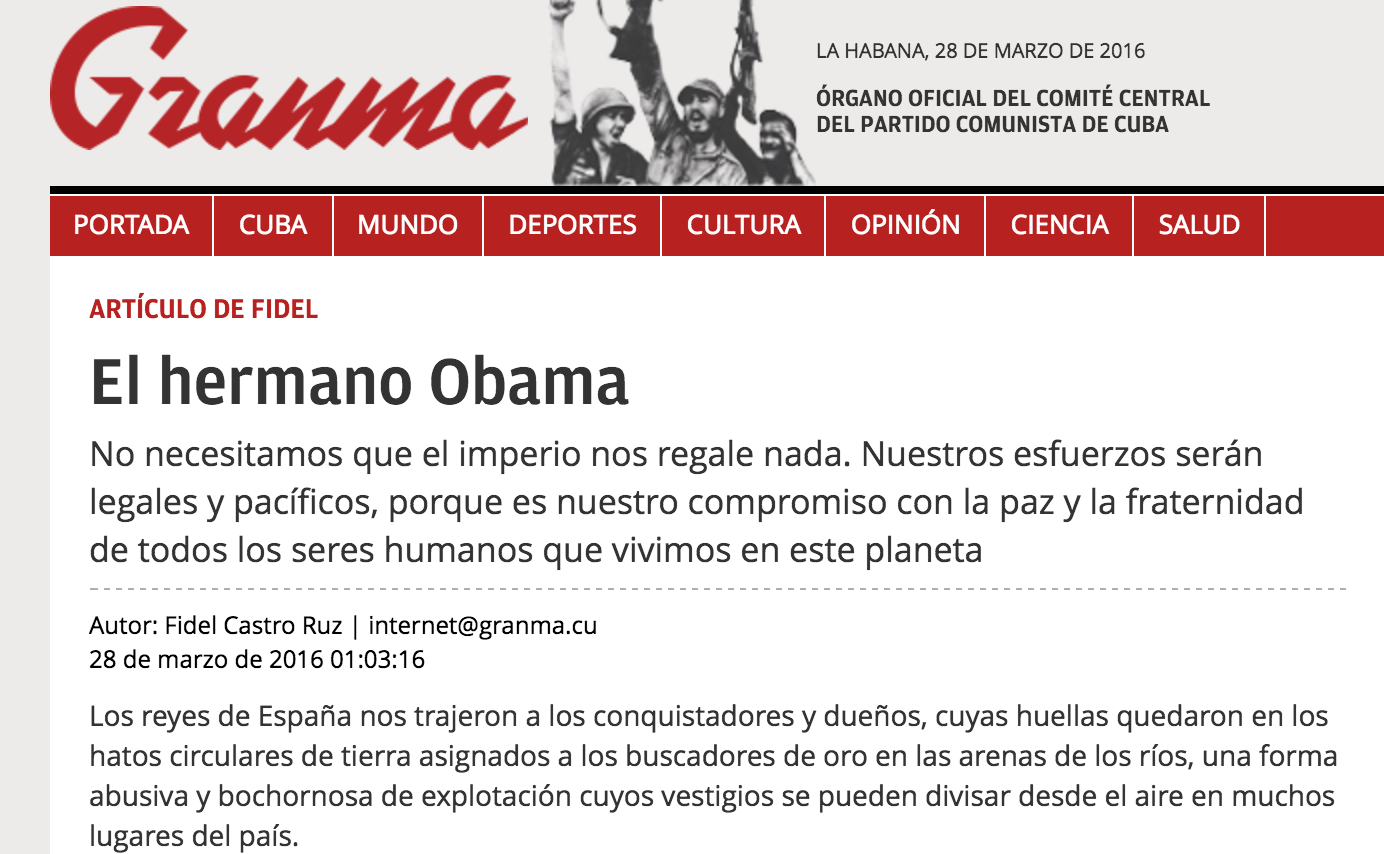Fidel Castro denounces Obama's Cuba visit: 'We don't need the empire to give us presents'
The essay was published following the US president's historic visit to the island nation

Just when you thought the two Cold War enemies were behaving like the best of friends, up jumps the pen of Fidel Castro to denounce Barack Obama, his evil empire, and his recent visit to Cuba.
In a 1,500-word "letter" published in state media, the 89-year-old leader of the Cuban revolution and brother of the current president, declared: “We don’t need the empire to give us any presents.”
Mr Obama’s recent two-day visit to Cuba saw him become the first sitting president in 88 years to travel to the Caribbean nation. The visit, during which he was accompanied by a large delegation of politicians, business leader and journalists, was the latest stage in a dramatic realignment of the two countries’ relationship, which started at the end of 2014.

During the visit, Mr Obama met with President Raul Castro, spoke to the Cuban people and urged the government to relax restrictions on free speech, saying it was time to “bury the last remnants of the Cold War in the Americas”. He also visited an exhibition baseball game with President Castro, where the two of them joined in "the wave".
But the Associated Press suggested that Mr Obama’s ides had not gone down well with some of those who were at the very centre of the half-century stand-off between the nations.
Mr Castro, who was the subject of repeated assassination attempts by the US, did not meet Mr Obama during the visit. In his essay published in Granma and entitled “Brother Obama”, he recounted decades of US hostility towards his country.
“My modest suggestion is that he reflects and doesn’t try to develop theories about Cuban politics,” he said, writing in the official newspaper of the Central Committee of the Cuban Communist Party. The paper is named after the yacht used to carry fighters of the Cuban revolution from Mexico to Cuba in 1956 who then helped overthrow the regime of dictator Fulgencio Batista.

Mr Castro, who led Cuba for decades before handing power to his brother in 2008, was legendary for his hours-long, all-encompassing speeches.
The news agency said that his letter - which apparently does not appear in Granma's English-language edition, reflected that style, presenting a sharp contrast with Mr Obama’s own, tightly focused speech in Havana. Mr Castro’s essay opened with descriptions of environmental abuse under the Spaniards and reviewed the historical roles of Cuban independence heroes Jose Marti, Antonio Maceo and Maximo Gomez.
Mr Castro essay covered central sections of Mr Obama’s speech line by line, engaging in an imagined dialogue with the American president with critiques of perceived slights and insults, including Mr Obama's failure to give credit to indigenous Cubans and his own prohibition of racial segregation after coming to power in 1959.
Quoting Mr Obama's declaration that “it is time, now, for us to leave the past behind”, Mr Castro added: “I imagine that any one of us ran the risk of having a heart attack on hearing these words from the President of the United States.”
He concluded his essay with a dig at the Obama administration’s efforts to increase business ties with Cuba.
“No one should pretend that the people of this noble and selfless country will renounce its glory and its rights,” Mr Castro concluded.
“We are capable of producing the food and material wealth that we need with with work and intelligence of our people.”
Join our commenting forum
Join thought-provoking conversations, follow other Independent readers and see their replies
Comments
Bookmark popover
Removed from bookmarks